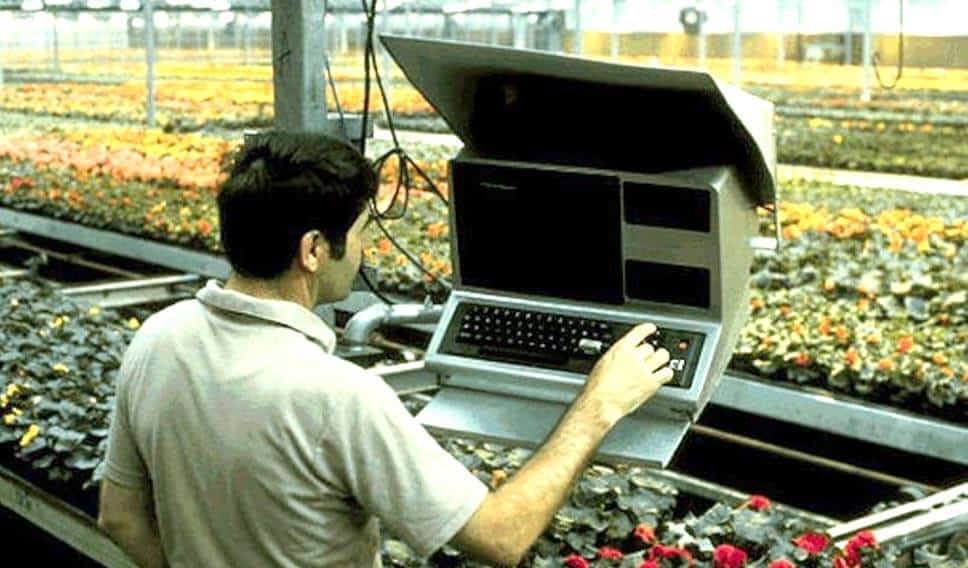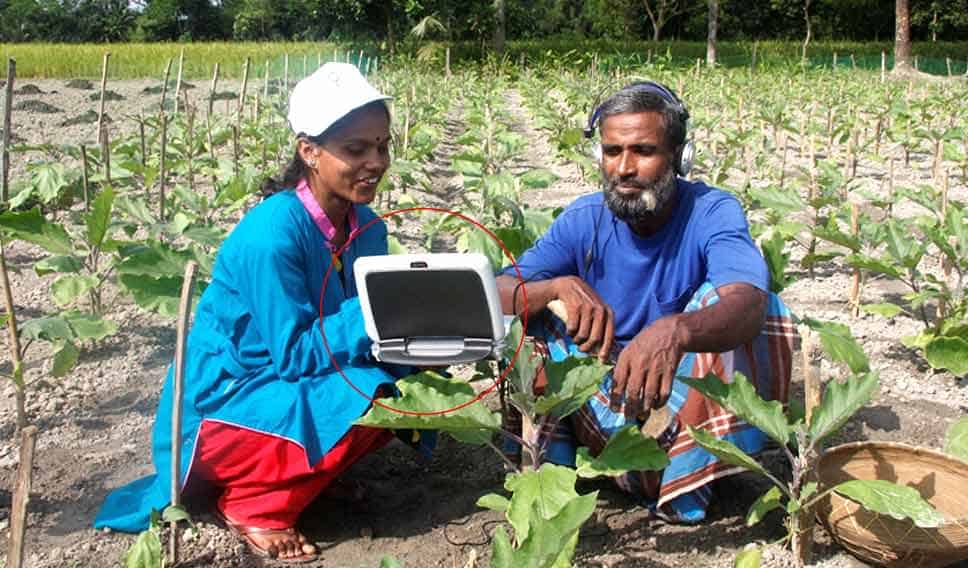
What are the advantages of computers in agriculture? The query is discussable worldwide. One of the most essential advantages of computers in agriculture is increased farm management efficiency.
Computers automate agricultural and livestock production, financial management, and decision-making processes. It allows farmers to work more efficiently and reduce labor costs.
In addition, computers can help farmers store and analyze data about their farms that can be used to make better decisions about crop and animal production. Another benefit of computers in farming is the development of precision farming.
Computers include monitoring and controlling all agricultural and livestock production aspects using GPS technology.
Computers allow farmers to optimize their production according to their country’s needs and growing farming conditions. It leads to higher yields, better use of resources, and less impact on the environment.
Online platforms have revolutionized communication between farmers and other stakeholders in the agricultural sector. Using computer technology, farmers can share information with their peers and receive valuable feedback.
Computer technology promotes collaboration and informed decision-making, ultimately increasing competitiveness within the industry. Access to real-time data on crops and livestock is made possible for farmers through computer technology, which assists them in making sound decisions. Let’s read about other benefits of computers in the field of agriculture.
Also Read: How To Build A Small Greenhouse For Winter
Improved Efficiency and Precision in Agriculture with Computer

Information technology has revolutionized agriculture by improving the efficiency and accuracy of farming practices. Information technology makes precision farming techniques that observe, measure and respond to crop variability possible.
IoT technology allows farmers to tailor management decisions to specific areas of their fields, resulting in higher yields and less waste. Computer applications use to create accurate business plans, field maps, crop detection, and yield maps and to determine the number of active ingredients to be applied accurately. The result will be increased production and reduced financial costs.
Automated farming equipment is another benefit of information technology in farming. Computerized devices like autonomous tractors and drones can perform tasks like planting, spraying, and harvesting more efficiently and accurately than manual labor.
Autonomous machines lead to higher work efficiency and lower environmental impact. In addition, computer vision and deep learning the use to inspect agricultural products, improving quality control and productivity. Hence, the use of computers in agriculture is approved.
Data collecting and analyzing in real-time is another critical advantage of information technology in agriculture. The ability to track physical objects, collect real-time data and predict scenarios could fundamentally change farming practices.
Data analytics and machine learning can analyze collected data, giving farmers valuable insight into their operations. It allows for more informed decision-making and better crop management, increasing efficiency, productivity, and profitability.
Also Read: Easiest Crops To Grow For Profit
Sustainable Agriculture Practices with Computer

Information technology has revolutionized agriculture, leading to sustainable farming benefiting both the environment and farmers. One of the main advantages of IT in agriculture is the reduction in resource consumption.
For example, precision farming uses resources only to the extent needed to solve specific problems, thus reducing the losses that occur with traditional farming practices, reducing water use, fertilizers, and pesticides, lower food prices, and having less environmental impact.
In this way, information technology can help farmers to conserve resources and make farming more sustainable and profitable.
Another vital advantage of information technology in agriculture is harvest improvement.
Using computer vision and artificial intelligence, farmers can analyze data to optimize their crop management practices, leading to increased productivity and profitability. AI technology is vital in producing healthier crops, reducing workload, and streamlining farming tasks.
However, on the one hand, these innovative tools can offer benefits such as lower costs and better yields. Still, they also require an initial investment, and farmers must be willing to adapt to new technologies.
However, the use of information technology in agriculture has the potential to increase yields and make farming more efficient and profitable. Information technology in agriculture can also reduce the environmental impact of agricultural practices.
For example, automated systems can help farmers save energy and water, reducing their environmental impact. The benefits of mechanical farming practices include labor productivity, consumer benefits, and reduced environmental impact.
Precision farming technologies enable farmers to use less to grow more, reducing costs and environmental impact. Therefore, information technology in agriculture can make agriculture more sustainable and environmentally friendly.
link to 11 Thorn Proof Gardening Gloves
Also Read: 11 Thorn Proof Gardening Gloves
Advancements in Agricultural Research and Development with Computer
Click the image to buy on Amazon
Computer technology has revolutionized agricultural research and development, leading to significant crop modeling and simulation advances.
Whole plant computer simulation models use plant physiology and environmental variables to calculate plant growth, yield, and dry matter. These models have been used to simulate crops and control breeding to increase crop productivity and quality realistically.
In addition, sophisticated computer models are estimating the impact of climate change on crop growth, allowing for better planning and management. In this way, information technology has enabled farmers and scientists to make more informed decisions and improve agricultural production.
Genetic engineering, another agricultural research and development area, has benefited dramatically from computer technology. Transgenic technology can improve crop quality and yield compared to conventional crops by improving stress resistance and yield traits.
The essential benefit of genetic engineering in agriculture is increased agricultural production, achieved by using genetic modifications to improve crop traits.
The use of high-performance computing and genetic engineering to increase the efficiency of photosynthesis also promises to increase plant productivity. Thus, computers have played vital roles in developing genetic engineering and improving agricultural production.
Also Read: Soil Moisture Meter: 11 Best Professional Soil Moisture Meters
Conclusion
In addition to crop modeling and genetic engineering, information technology has also enabled the development of data-driven crop management techniques.
Using big data and mobile technologies has enabled more precise cultivation, higher yields, and better quality by decreasing resources such as water, fertilizers, and pesticides.
Decision-making systems based on crop simulation models have been developed to assess agricultural management strategies’ risk and economic impact—automation employed to control the production process better and maintain higher plant quality and viability standards.
In this way, information technology has transformed agriculture, giving farmers and scientists the tools to make more informed decisions and improve agricultural production while reducing environmental impact.
Read More
- 26 Plants That Can Live In A Basement
- How To Build A Small Greenhouse For Vegetables
- Top Agriculture Corporations In The World
- How Can I do Smart Gardening?
Recent Posts
Here is reply of high-demand removable wallpapers. The wallpaper industry has changed a lot in recent times, with the launch of removable wallpaper being seen as a blessing for homeowners, renters,...
Brown is an often neglected color when considering interior design but brown decor living room ideas could make your house feel warm, sophisticated, and timeless. More adaptable than any other...

